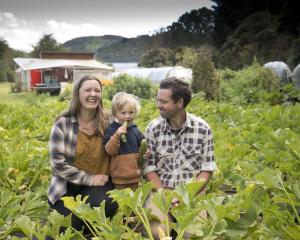Discovered missing during routine inspections on Thursday morning, the missing eggs could represent about 10% of all those produced in Dunedin this breeding season, Otago Peninsula Trust ecotourism manager Hoani Langsbury said.
"I’m in shock and horror really, and have been for a few days," Mr Langsbury said yesterday.
"I had a quick briefing with our staff this morning and they are all horrified by it."
The breeding season for the large, but nationally vulnerable, native seabirds began in late September when breeding-aged birds began returning to the colony — the only mainland colony of albatross in the southern hemisphere.
The birds were in the middle of egg laying now and in another 10 days every egg expected this season would have been laid at the Department of Conservation-managed colony.
"If you were targeting eggs, you would have to understand the breeding cycle and know when to be here — and now is the time."
He could not guess at the motivation for someone to take the eggs.

At that time, in 1938, one of Dunedin’s early conservationists Lance Richdale spent weeks over the breeding season protecting the nests at the colony.
Doc coastal Otago operations manager Annie Wallace said staff were gathering security camera footage and talking to people who might have relevant information.
"It’s thought the eggs may have been taken as there are no signs they were eaten by predators," she said.
"This is devastating for our staff who put in countless hours caring for these birds in challenging conditions, keeping them cool on hot days, working to prevent flystrike, and providing supplementary feeds to underweight chicks."
There are about 17,000 northern royal albatross in the world, typically breeding in the Chatham Islands.
Dunedin’s mainland population is believed to number about 250 birds.
- 0800 DOC HOT (0800 362 468) or Police 105.












